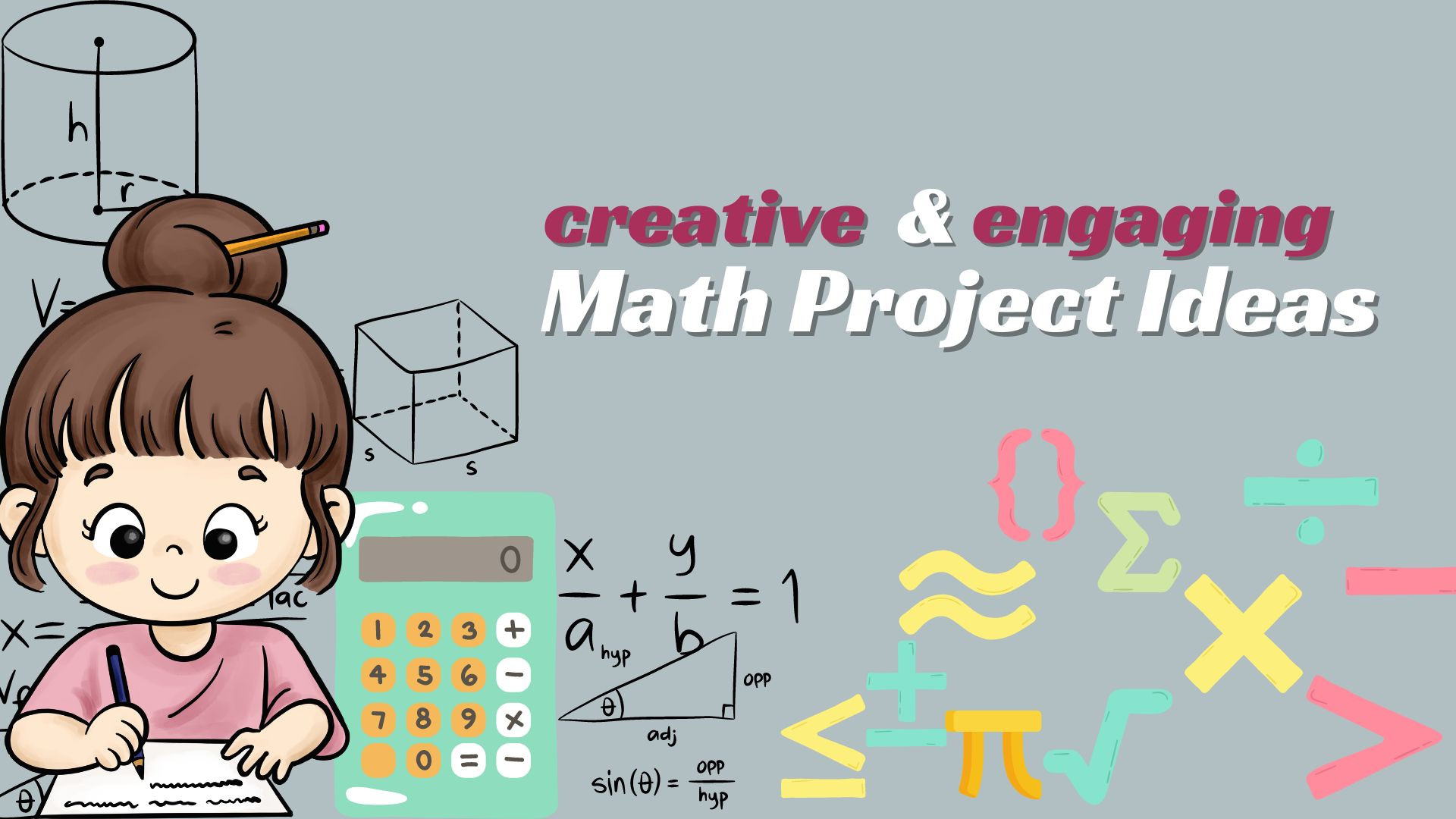
Mathematics plays a vital role in increasing the creative ability of the students in their daily life. Mathematics is essential in every field of life, from counting in grocery shops to calculating distances between two different places. However, there are times when students need to get more engaged and have fun in mathematics. In such cases, math projects can be beneficial in making the subject very exciting and engaging, making math very interesting for students. The following article will help provide some of the most exciting science projects, which will help make the subject both interesting and educational. The math projects mentioned in this article will help boost the students' problem-solving, critical thinking and analytical skills, making most difficult topics a lot more fun and engaging.
Importance of mathematics in everyday life
Some of the most crucial roles played by mathematics in our everyday lives are:
- Useful in daily life lessons: Mathematics plays a crucial role in our everyday life. Mathematics helps us study quantity, number, and space in our everyday lives and provides a universal language which helps in describing and evaluating the world in which we live.
- Problem-solving tool: One of the most significant importance of mathematics in our daily lives is to solve different types of problems around us. Mathematics is required to solve almost every type of simple arithmetic problem to various complex equations in our daily lives. For example, mathematics is required in different fields, such as finance, economics, engineering, and science. It helps provide a framework which can be used to analyze various types of data which can be utilized in different types of problems in the world around us.
- Contribution to technological advancement: Mathematics is significant in developing technology around us. Different types of inventions that are a daily part of life, such as mobiles, computers, and television, are possible due to mathematics. Mathematics plays a vital role in the programming of computers. Mathematical concepts such as logic, calculus and algorithms are essential elements of computer programs.
- Historical importance: Mathematics has an outstanding contribution and significance in the history of humanity.
Essential elements of interesting math projects for students of all ages:

Introducing math projects in academic study is essential in developing analytical skills and using their mathematical skills daily. The math projects provided to the students should be engaging and creative, which can help the students learn problem-solving skills and develop in-depth knowledge regarding various mathematical concepts. Some of the significant elements of engaging math projects for students are:
- Defining clear objectives: The math projects provided to the students should have clear objectives and goals that can be measured after completion. The project's objectives should help fulfill the math class's goals and align with the student's syllabus.
- Actual world application: The math projects given to the students should be able to solve real-world problems, making the project more exciting. Moreover, it also helps the students identify the real-world application of various mathematical concepts and skills learned in the project.
- Promotion of collaborative learning: The projects given to the students should help them to work together in teams and groups. This is essential in developing communication and teamwork skills and improves their learning, which enhances the emotional and social development of the students.
- Innovation and creativity: The math projects given to the students should motivate them to use their innovative and creative ability to solve various problems. This is one of the most essential elements of an exciting math project for students of all ages. Creative thinking also motivates the students to develop their ideas and implement them to solve different mathematical problems they face in their projects.
- Analysis and Research: Research is an essential element of an engaging math project, as every math project should motivate students to research new methods and ideas to solve different types of mathematical problems in their project. The data collected by the students should be analyzed to find solutions using different mathematical ideas and concepts.
- Communication and presentation: The math projects submitted by the student should include a report describing the various findings and solutions developed by the students regarding the different problems they faced during their math project. This is an essential element as it helps the students learn to communicate complex ideas and concepts quickly and increases their ability to use them in real-life situations to find solutions to different types of complex problems.
Importance of math projects for students in different classes
- It helps in improving the knowledge of the student.
- It promotes creativity and innovation in students.
- It increases the critical thinking ability among the students.
- It increases collaboration skills among the students.
- It enhances the presentation skills of the students.
Tips to select an exciting math project.
- Identifying the popular and current topics around the world.
- Taking the assistance of different online platforms.
- Setting projects as per the interest of the student.
- Analyzing the previous project.
- Taking a bit of help from teachers.
Examples of creative math projects for 2024
Investing number patterns
- It includes investigating and examining the various types of number patterns such as geometric progression, prime number and Fibonacci sequence.
- Creating a visual presentation to demonstrate the different types of numbers and their patterns.
- What is the relation between probability and binomial coefficients, and how is it connected to Pascal's triangle?
Spatial visualization and geometry
- Investigating the application and properties between different types of shapes, such as 2D and 3D shapes, fractals, polyhedrons and polygons
- Construction and designing different types of geometric structures with the help of various types of materials, such as 3D printing
- Evaluate the concept of symmetry and how it is used in art, architecture and nature.
- Explore the use of Geometry in technology, such as Computer-aided Design (CAD), computer graphics or Virtual reality.
Data statistics and analysis
- Using statistical tools in programming language for performing visualization and data analysis
- Performing experiments and surveys to evaluate relationships in different types of variables and using statistical tests.
- Conducting different types of research to investigate topics related to the field of interest with the help of different types of graphs and charts.
Application of math in real world
- Investigate the application of mathematics in different fields such as engineering, computer science and engineering.
- Explain and elaborate on the use of math in everyday life as mathematics.
- Math and sports: Analyze sports statistics to understand player performance. Analyze sports using graphs and charts.
- Math in Music: Explore the mathematical concept behind music, such as rhythm, harmony and frequencies.
- Math in Nature: Study patterns in nature such as the Fibonacci sequence in flower petals or golden ratio in seashells.
- Math and Art: Use mathematical concepts like symmetry, tessellations and fractals to create art projects.
- Math and cooking: Apply mathematical principles like ratios and proportions, and conversions.
- Math and Games: Analyze strategy games like Sudoku, chess, or Rubik’s cube.
- Math and Technology: Explore the mathematics behind coding and algorithm, digital graphics, or cryptocurrency.
- Math and social issues: Investigate mathematical concepts related to social issues, such as population growth, income inequality, or climate change. Use mathematical modeling to propose solutions and analyze.
- Math and Everyday Life: Document the math involved in your daily activities, such as budgeting, shopping, or planning a trip. Show how mathematical concepts like percentage, fractions and averages are used in daily scenarios.
- Math and History: Research historical events where mathematics played a significant role, such as development of calculus, or use of mathematics in ancient civilization.


